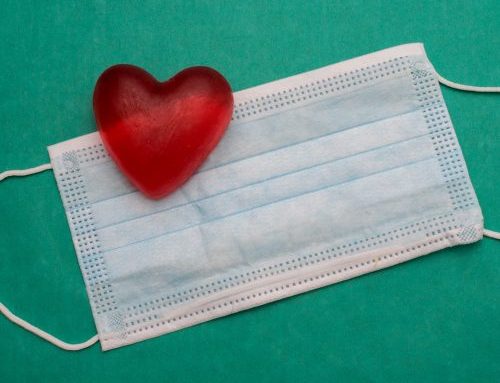Chances are, even though you may not have direct exposure to the Coronavirus (aka COVID-19), you have been affected by it already. As you scroll through social media or turn on the television, you have likely been exposed to the constant media coverage. If you’ve walked through a Target or Costco, you’d be hard pressed to find N-95 masks, toilet paper, or cleaning supplies. That flight/vacation/conference/concert you bought tickets for, from months ago, may have been cancelled. Your children may be joyfully celebrating a 2-week spring break, while you are figuring out who will watch them while you go to work.
The Coronavirus outbreak is affecting all of us. For some, this outbreak is causing significant health anxiety. Health anxiety is a type of anxiety that causes a person to worry that they are ill or becoming ill. When it is severe, it can impact one’s life by limiting daily functioning and interfering with one’s quality of life. Individuals who have suffered a serious, possibly life threatening illness may be at greater risk for developing health anxiety. The triggering health event may cause them to become hyper-sensitive to physiological sensations in their body, resulting in fear that they may become seriously ill again.
Whether or not you have health anxiety, the real life consequences of the Coronavirus can trigger worries, fears, and anxiety symptoms. So even if you do not develop the physical symptoms of the virus, what are strategies for coping with the psychological impact of the Coronavirus?
Stay informed, but limit your exposure to media – In the age of technology, we have near-constant access to media coverage whether we are actively seeking it out or not. Be mindful of the information you are taking in. Be critical of the source and ask yourself whether the source is reliable. It may be wise to stick to information coming directly from the CDC (Center for Disease Control) or WHO (World Health Organization). Secondhand information may misinterpret or overinterpret the original data. Like a game of telephone – by the time it gets to the final player, the details can be quite distorted. Lastly, while absorbing the information can feel informative at first, be mindful of when it becomes anxiety-provoking and know when to turn it off. A good rule of thumb is – check no more than once a day and if there’s no new information to be learned, don’t keep watching/listening/reading. Persisting (or obsessing) will only stir up emotions without adding knowledge.
Follow CDC guidelines, and be smart about your activities – The CDC provides clear guidelines to prevent the spread of the virus, both individually and communally. These are helpful and important: wash your hands for at least 20 seconds, avoid touching your face, and avoid large gatherings of people (See the full list of guidelines here: https://www.cdc.gov/coronavirus/2019-ncov/about/prevention.html). An important guideline is to stay at home if you are feeling ill or if you have reason to believe you may be at higher risk than the general public (i.e., you recently visited a high risk area or you have a condition that places you at higher risk). Even if these conditions do not apply to you, be smart about your activities. You may choose to limit your outings to essential errands, which may be appropriate. However, know the difference between fearful avoidance (which breeds more fear and anxiety) and thoughtfully choosing your errands and activities.
Have a preventative plan and a proactive plan – Similar to point #2, know how to take the recommended preventative steps, but also familiarize yourself with the symptoms to watch for in case you become exposed (https://www.cdc.gov/coronavirus/2019-ncov/about/symptoms.html). If you have reason to suspect that you may have symptoms, take the recommended steps to contact your primary care provider (for example, call ahead to let them know you may have symptoms so they can take the appropriate precautions for your visit). It has been advised to avoid the Emergency Room unless you have severe symptoms. Know what signs to look for and have a plan.
Stay calm and stay healthy – As you go about your activities, continue to engage in appropriate self-care to strengthen your emotional and physical health. This includes maintaining a balanced diet, getting enough sleep, exercising, and managing stress levels.
Some degree of anxiety is certainly normative – this is a challenging reality that is affecting everyone. However, if these strategies are not effective in helping you to manage your worries about the virus (or if these events are causing emotional distress), please reach out to one of our providers. We offer teletherapy and in-office services to accommodate your needs. We can help.
Dr. Amy King and all of our counselors are available to speak with you if you want to talk through your emotions (which can be very complicated!) on the subject with someone.





